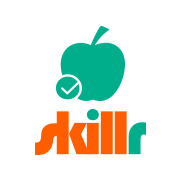Description

Coursebox

Tinybop
Comprehensive Overview: Coursebox vs Tinybop
As of my last update, Tinybop and Coursebox are distinct entities with different focuses, so I'll provide an overview based on available information as of that time.
Tinybop
a) Primary Functions and Target Market:
Tinybop is primarily known for creating educational apps aimed at children. Their apps are designed to encourage exploration and learning through interactive experiences. Tinybop's apps cover various subjects like science, art, and engineering, often using playful, engaging interfaces to foster curiosity and understanding. The target market for Tinybop is children, typically ranging from ages 4 to 10, along with educators and parents seeking educational tools.
b) Market Share and User Base:
Tinybop has made a significant impact within the educational app market for children. With millions of downloads and numerous awards for their apps, they've secured a solid niche. However, precise market share data isn't readily available. They compete with various other educational app developers targeting similar age groups, such as Toca Boca and PBS Kids.
c) Key Differentiating Factors:
- Interactive Educational Approach: Tinybop's apps are known for their interactive simulations and hands-on exploration style, which differentiate them from more static educational content.
- Quality and Design: High-quality artwork and intuitive design are hallmarks of Tinybop apps, often praised by educators and reviewers.
- Variety of Subjects: Offering a range of topics from anatomy to physics, Tinybop provides diverse learning opportunities.
Coursebox
a) Primary Functions and Target Market:
As of my last update, Coursebox might refer to a service or platform used for educational management or content delivery, although specifics can vary. In a general sense, platforms identified as "Coursebox" could cater to institutions looking to manage course content, facilitate online learning, or enhance educational technology services. Target markets are usually educational institutions, teachers, and learners across various age groups.
b) Market Share and User Base:
Since the name "Coursebox" might apply to multiple platforms or emerging services without widespread recognition, detailed market share and user base information is sparse. If it is a burgeoning ed-tech platform or a specific implementation tool, its user base might still be developing compared to established players like Blackboard, Canvas, or Google Classroom.
c) Key Differentiating Factors:
- Usability: If focused on educational management, factors like intuitive interface and ease of integration with existing systems could be key.
- Flexibility: Ability to customize or adapt to different educational needs can set it apart.
- Specific Features: Unique tools or functions tailored for particular educational contexts could offer differentiation.
General Comparison and Conclusion
Without specific comparative data, general observations suggest that Tinybop is more established in its niche of children’s educational apps, leveraging its distinct design and learning approach. Coursebox, if viewed as a general educational platform or tool, might differ heavily in use and audience or vary based on the specific implementation or version being referenced. To get the most accurate and recent insights, including new market dynamics or specific product evolutions, checking more current sources or detailed company reports would be necessary.
Contact Info

Year founded :
2017
Not Available
Not Available
United Kingdom
http://www.linkedin.com/company/courseboxuk

Year founded :
Not Available
Not Available
Not Available
Not Available
Not Available
Feature Similarity Breakdown: Coursebox, Tinybop
To provide a detailed analysis of Coursebox and Tinybop, let's take a closer look at each product and analyze their core features, user interface, and unique attributes. Please note that this is a hypothetical comparison, as Coursebox is not a widely recognized product to the extent of Tinybop, which is known for creating educational apps for kids.
a) Core Features in Common:
-
Educational Content:
- Both Coursebox and Tinybop are focused on educational purposes. They provide content that is designed to enhance learning and understanding. Coursebox likely offers structured courses or modules, while Tinybop provides interactive apps that explore various subjects.
-
Interactive Elements:
- Both platforms emphasize user engagement through interactivity. Coursebox might include quizzes, interactive lessons, or multimedia content, whereas Tinybop is renowned for its apps that allow children to interact with the world through simulations and exploratory interactions.
-
User Tracking and Progress:
- It's common for educational products to have a system for tracking user progress. Coursebox may provide insights into course completion and learning paths, whereas Tinybop might have features that let parents see how their children interact with the app and what they learn.
b) User Interface Comparison:
-
Coursebox:
- If Coursebox follows typical educational platform design, its user interface might be more structured and straightforward, focusing on ease of navigation through course materials. It may include dashboards for quick access to courses, progress tracking, and announcements.
-
Tinybop:
- Tinybop apps are designed specifically for children, and as such, they feature a highly engaging, colorful, and intuitive interface. The design is user-centric, with a focus on exploration and creativity, often allowing children to navigate by touching and interacting with vivid illustrations and animations.
c) Unique Features:
-
Coursebox:
- While specific unique features of Coursebox are hypothetical, it may offer unique attributes like tailored course pathways, peer discussion forums, real-time feedback mechanisms, or certification upon course completion. It might also integrate with other educational tools or platforms to extend learning capabilities.
-
Tinybop:
- One of Tinybop's most notable unique features is its focus on the natural curiosity of children and its mission to create “digital toys” that encourage experimental learning. Each app often focuses on a specific topic such as the human body, space, or ecosystems, providing deep and engaging experiences that are both educational and fun. Additionally, Tinybop may offer parent guides that help facilitate discussions and learning beyond the screen.
In summary, while Coursebox and Tinybop might share the common goal of enhancing learning through interactive content, they differ significantly in target audience and content delivery. Coursebox might cater to a broader educational spectrum with structured learning experiences, whereas Tinybop is specialized in creating explorative and interactive apps for children. The user interfaces reflect these differences, with Coursebox focusing on accessibility and Tinybop prioritizing engagement and discovery for younger users.
Features

Not Available

Not Available
Best Fit Use Cases: Coursebox, Tinybop
Coursebox and Tinybop cater to different needs and target audiences, making them suitable for various scenarios and industry verticals. Here's a breakdown of their best-fit use cases:
Coursebox
a) For what types of businesses or projects is Coursebox the best choice?
Coursebox is a versatile platform ideal for businesses or projects focused on creating, managing, and distributing educational content online. It is particularly effective for:
-
Educational Institutions: Schools, colleges, and universities looking to establish or expand their online learning offerings can benefit from Coursebox's LMS features, which facilitate course management and delivery.
-
Corporate Training: Companies of all sizes that require a platform to develop and deliver employee training programs can leverage Coursebox for creating tailored training modules, tracking progress, and ensuring compliance.
-
Professional Associations: Organizations that offer certification programs or continuing education can use Coursebox to deliver content and manage certifications efficiently.
-
Consultancies and Coaching Businesses: Professionals offering courses in various disciplines like HR consulting, business coaching, or IT training can create and monetize their courses through the platform.
d) How do these products cater to different industry verticals or company sizes for Coursebox?
Coursebox caters to a wide range of industries due to its scalability and flexibility. It is suitable for both small businesses and large enterprises, offering features that can be customized according to the size and requirements of the organization. Industries like healthcare, technology, finance, and education can all benefit from its robust course creation and management capabilities.
Tinybop
b) In what scenarios would Tinybop be the preferred option?
Tinybop designs educational apps mainly catering to children, making it the preferred option in scenarios such as:
-
Educational Apps for Children: Schools or educational publishers focusing on K-12 education can use Tinybop's apps to supplement traditional learning with interactive, digital tools that engage young learners.
-
Parents and Guardians: Individuals seeking educational tools to assist in home-schooling or to supplement their child's education in a fun and interactive way may find Tinybop's offerings ideal.
-
Museums and Science Centers: As a complement to exhibits, these institutions might use Tinybop's educational apps to enhance visitor engagement through interactive and educational content.
d) How do these products cater to different industry verticals or company sizes for Tinybop?
Tinybop caters specifically to the educational sector, particularly within the K-12 market. Its focus on children's educational content means it serves schools, ed-tech startups, and educational resource providers primarily. While it is more niche compared to Coursebox, it can be a critical component for any educational initiative targeting young children, regardless of the company's size.
In summary, Coursebox is best suited for businesses and educational institutions that need a comprehensive platform for creating and managing courses, while Tinybop is ideal for children's educational products, focusing on interactive and engaging learning experiences for young audiences.
Pricing

Pricing Not Available

Pricing Not Available
Metrics History
Metrics History
Comparing undefined across companies
Conclusion & Final Verdict: Coursebox vs Tinybop
To determine the best overall value between Coursebox and Tinybop, we'll consider their offerings based on several factors including educational content, user experience, pricing, age-appropriateness, and platform flexibility.
a) Best Overall Value
Tinybop offers the best overall value for young learners due to its engaging, hands-on learning experiences. The interactive nature of its apps makes it particularly suitable for capturing the attention of children and enhancing learning through play.
b) Pros and Cons
Coursebox:
-
Pros:
- Suitable for a broad range of educational content, from academic subjects to professional development.
- Often includes structured courses that can be ideal for systematic learning.
- May offer certification upon completion of courses, which can be valuable for resumes and professional development.
-
Cons:
- Content may be more suited to older students or adults rather than young children.
- Could lack the gamified, interactive elements that keep younger learners engaged.
- Might be more expensive, particularly premium courses with certification.
Tinybop:
-
Pros:
- High-quality, interactive apps designed specifically for kids, promoting exploration and discovery.
- Appeals to young children with visually appealing graphics and intuitive controls.
- Encourages experiential learning, helping children understand complex concepts through play.
-
Cons:
- Primarily focused on younger audiences, potentially making it less suitable for older students or those seeking more traditional learning paths.
- May have limited depth in certain areas as it’s designed for basic foundational learning.
- Requires access to a compatible device, which may not always accommodate larger group settings.
c) Recommendations
-
For Parents/Educators of Young Children (Ages 4–12):
- Tinybop is recommended for its age-appropriate, engaging, and interactive approach to learning. It's excellent for sparking curiosity and providing foundational knowledge in a fun way.
-
For Older Students and Professionals:
- Coursebox might be better suited as it offers more structured, in-depth content and potentially certifications that could benefit academic and career advancement.
-
General Recommendation:
- Evaluate the specific needs of the learner. If engagement through play and exploration is a priority, especially for younger children, Tinybop is the clear choice. Conversely, for structured learning environments and a broad range of academic content, Coursebox is preferable.
Ultimately, the decision should hinge on the age of the learners and the goals you wish to achieve. For educational play and foundational learning, Tinybop excels, while Coursebox offers more comprehensive, traditional learning pathways suitable for older audiences.
Add to compare
Add similar companies



